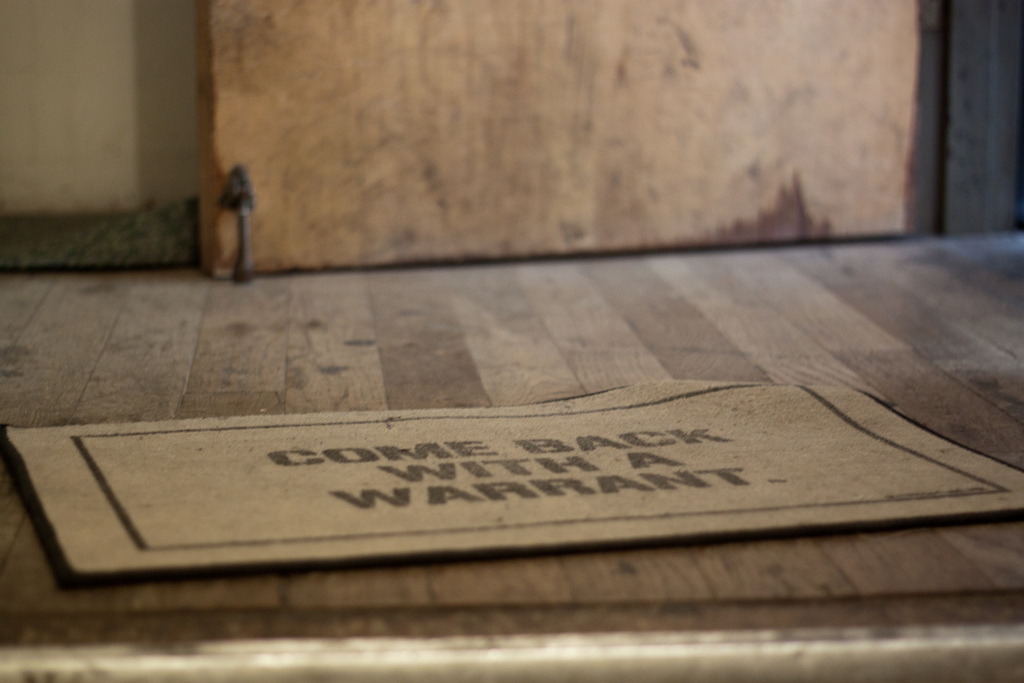Appeared in the Toronto Star on February 23, 2013 as Canada’s Telecom Transparency Gap is Alive and Well The government’s recent decision to kill its online surveillance legislation marked a remarkable policy shift. The outcry over the plan to require Internet providers to install surveillance capabilities within their networks and […]

Come back with a warrant by Rosalyn Davis (CC BY-NC-SA 2.0) https://flic.kr/p/aoPzWb
Lawful Access
Lawful Access is Dead (For Now): Government Kills Bill C-30
Justice Minister Rob Nicholson announced yesterday that the government will not be proceeding with Bill C-30, the lawful access/Internet surveillance legislation:
We will not be proceeding with Bill C-30 and any attempts that we will continue to have to modernize the Criminal Code will not contain the measures contained in C-30, including the warrantless mandatory disclosure of basic subscriber information or the requirement for telecommunications service providers to build intercept capability within their systems. We’ve listened to the concerns of Canadians who have been very clear on this and responding to that.
This shift in policy is remarkable, particularly for a majority government that has used crime as a legislative wedge issue. Almost one year ago to the day – on February 13, 2012, Public Safety Minister Vic Toews infamously told the House of Commons that critics of his forthcoming bill could stand with the government or with the child pornographers. Bill C-30 was introduced the following day, but within two weeks, a massive public outcry – much of it online – forced the government to quietly suspend the bill and now a year later openly acknowledge that it is dead.
Law Enforcement Renews Demand for Internet Surveillance Legislation
To put it very simply, if the police cannot convince a judge that the connection should be made, they should not be able to obtain it. If you can’t convince a judge that it will lead to evidence of a crime, the cops should go back to the drawing board.
While the CACP insists that “Canadians need to understand what lawful access is truly about”, it unfortunately resorts to headline grabbing claims that have little to do with the bill. Much like the government’s initial focus on child pornography, the CACP jumps on the recent focus on cyber-bullying, stating:
Ibbitson on the End of Bill C-30
The Globe’s John Ibbitson has a column on Bill C-30, the lawful access/Internet surveillance bill, that he says dying a quiet death.
Public Safety Shuffle Could Allow for an Internet Surveillance Restart
My weekly technology law column (Toronto Star version, homepage version) notes that Toews infamously introduced the Internet surveillance bill, often referred to as lawful access, by stating that critics of the bill could either stand with the government or with child pornographers. The comments sparked outrage from across the political spectrum as Canadians questioned the need for the legislation, the lack of privacy safeguards, and the divisive communications strategy.






